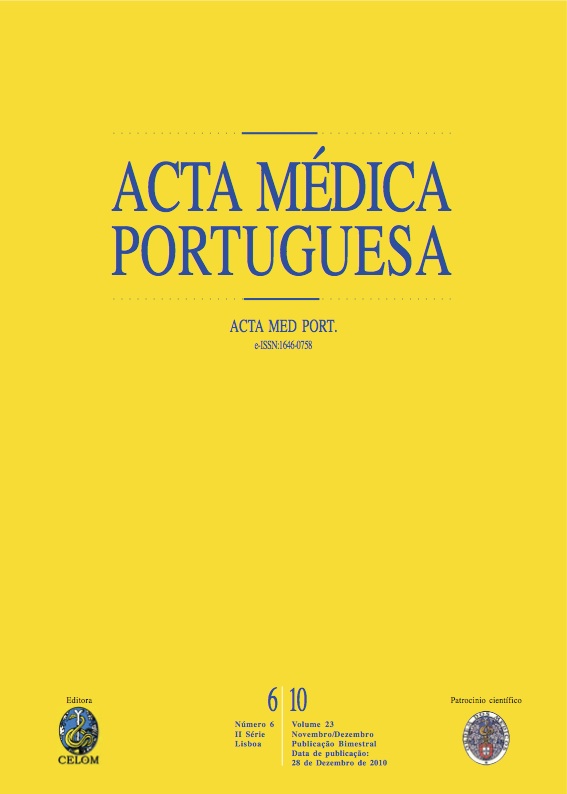After the booze comes the hangover: a perspective of alcohol consumption in young.
DOI:
https://doi.org/10.20344/amp.752Abstract
Until today, little relevance has been given to the main cause of alcohol consumption related morbidity in young population, the so called "the next day morning alcohol hangover". The hangover is defined by the presence of symptoms connected to excessive alcohol consumption and its total metabolism, with severity enough to disturb responsibilities and daily life activities. Numerous observations show us that generally the young populations tend to be involved in a series of behaviors to cope with the unpleasant effects of a night of immoderate alcohol consumption. Through an empirical evaluation, it will be argued in this study the circumstances implicated in alcohol hangover and which behaviors the young population normally tends to be involved in order to attenuate it. The sample comprised 134 university students (1º year). It can be concluded that the frequency of the behaviors to cope with alcohol hangover translates the need to remove or alleviate in an accurate and symptomatic way the most reiterated effects of aversive alcohol hangover cluster. This work provides reliable information that could be employed from an educational point of view, while we profound which cognitive, behavior and physiological mechanisms occurs during an episode of alcohol hangover. Taken into account that the consumption of alcoholic beverage is a normative behavior in adolescence, we propose a realistic perspective of the phenomenon (more than ideological and utopic), that encompass the maximum delay of the beginning of alcohol consumption in young, educating them in what concerns the potential harm of its consumption, incorporated in a broad perspective of promotion of an healthy life style and of proximity with the adolescent.Downloads
Downloads
How to Cite
Issue
Section
License
All the articles published in the AMP are open access and comply with the requirements of funding agencies or academic institutions. The AMP is governed by the terms of the Creative Commons ‘Attribution – Non-Commercial Use - (CC-BY-NC)’ license, regarding the use by third parties.
It is the author’s responsibility to obtain approval for the reproduction of figures, tables, etc. from other publications.
Upon acceptance of an article for publication, the authors will be asked to complete the ICMJE “Copyright Liability and Copyright Sharing Statement “(http://www.actamedicaportuguesa.com/info/AMP-NormasPublicacao.pdf) and the “Declaration of Potential Conflicts of Interest” (http:// www.icmje.org/conflicts-of-interest). An e-mail will be sent to the corresponding author to acknowledge receipt of the manuscript.
After publication, the authors are authorised to make their articles available in repositories of their institutions of origin, as long as they always mention where they were published and according to the Creative Commons license.









